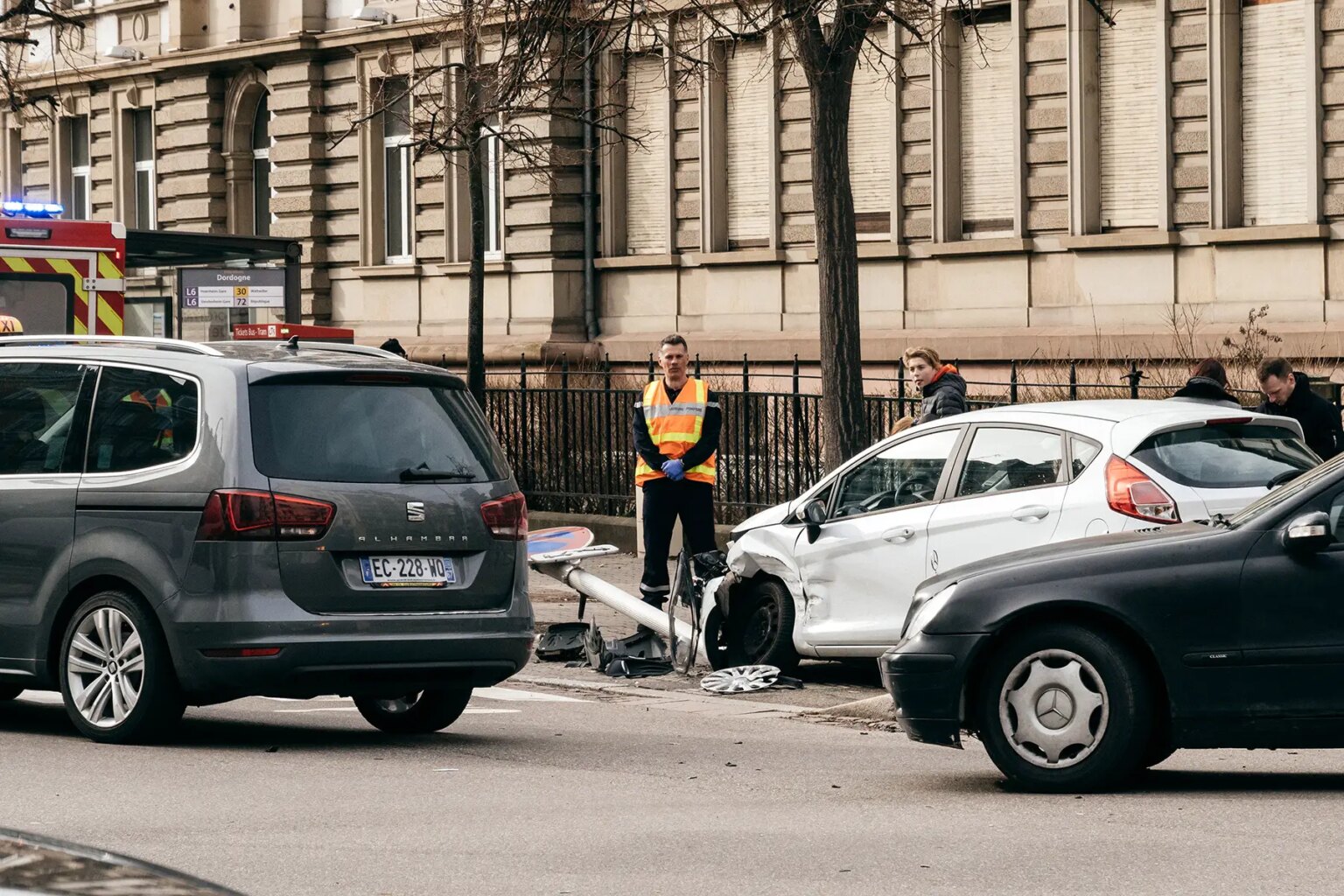Can a foreigner buy a car in France, and if so, how? This guide covers all you need to know. Plus we’ll touch on how Wise can help expats and residents manage their finances when making significant purchases like cars in France, offering competitive exchange rates, low transfer fees, and transparent pricing that can help you save money compared to banks
Key takeaways
- You can buy and register a car in France if you’re a legal resident of the country with a driving license covering the specific vehicle category
- When you register your car you must provide a set of documents to prove legal ownership
- Once driving you need to keep mandatory equipment in the vehicle and carry your driving license and registration certificate
- It’s mandatory to have vehicle insurance which you can arrange through a broker like Fab French Insurance. Carrying proof isn’t necessary as your insurance records can be accessed on a national database
- To make a major purchase like a car in France, you may find you get a better deal if you pay with Wise. Wise lets you convert currencies with the mid-market rate and low fees, perfect if you’re buying as an expat
How to buy a car in France: Step-by-step process
Let’s jump right into the detail – here’s how to buy a car in France in a few simple steps:
1. Set a Budget and Secure Funding:
The price of buying a car in France can vary enormously depending on the vehicle type, age and condition. To make the purchase process easier, it helps to start with a realistic budget. You can choose to pay for your new car in France in cash, by taking out a loan in France or in your home country, using a hire purchase scheme or by getting dealer financing for example.
Each option has its own advantages and disadvantages – if you’re sending money from another country to France to pay for your new vehicle, check out Wise as a low cost secure route to transfer funds online and through the Wise app.
2. Research and Select a Vehicle:
Now you know what you have to spend, you can research which car suits your needs. There are plenty of sites online to inspire you – consider whether you want to buy new or used, and then invest some time searching and filtering the options on dealership websites or umbrella resale sites in your local area.
3. Due Diligence and Inspections (Crucial for Used Cars):
When you buy a new car from a dealership you have a point of contact if you’re unsure about the vehicle history or condition – but buying second hand through a private sale means taking the time to check the car out yourself. When you view the vehicle be sure to get a good feel for the condition it’s in, and consider having a mechanic check it over to spot any issues you may not immediately see.
You can also use the French government website to request a vehicle history check which covers essentials like the vehicle’s maintenance and accident history, ownership and other notable points.
4. Gather the Documentation:
When you purchase the vehicle the seller will need to pass you some key documents, and a transfer code which you use to register the car in your own name. In France the vehicle registration certificate is called the Carte grise – the grey card.
5. Secure Payment:
The next step will be to pay for your new car. How you can pay depends on the seller – at a dealership you may be able to pay by bank transfer, cheque or cash or even using a card. Private sellers may prefer a bank transfer, cheque or cash. Bear in mind that you’ll need a French bank account with a chequebook if you intend to pay using a cheque – a foreign cheque is unlikely to be accepted.
If you’re paying by bank transfer from a currency other than euros, Wise can be a good choice with support for fast, secure payments that use the mid-market rate and low, transparent fees.
6. Transfer Ownership and Register the Car:
Once the sale is complete, the seller will register the sale and generate a transfer code which they pass on to you as the buyer. You must now register the car with ANTS, which can often be done remotely online. This process requires you to have a few documents, but is fairly straightforward to follow. You have 1 month from taking possession of the car to register it.
7. Arrange Insurance Coverage: Before you drive your vehicle make sure you have the mandatory items in the car like a high visibility vest, and warning triangle, and arrange your mandatory insurance. To comply with the law, this should include at least third-party liability insurance, which covers you for damages caused to others.
Who can buy a car in France?
So – can I buy a car in France as a non-resident?
You can buy a car in France as a resident or as a non-resident. However, it’s only legal to register a car for use in France if you’re a resident – which means that unless you intend to export the vehicle, it’s only really practical to buy in your own name if you have a French address.
To register a car to drive legally in France you need to hold a driving license for that specific type of vehicle, and provide proof of ID and address, as well as full documentation for the vehicle itself.
If you’re staying in France with someone it is possible to provide proof of your address, accompanied by documents and details for your host. It’s also possible for someone under age or without an adequate license to have a car, as long as it is registered in the name of an individual with the proper license. If either of these situations apply you may need to get personal advice on navigating the vehicle registration process properly.
What are the documents required to buy a car in France?
When you buy a vehicle the seller is likely to check your ID and proof of address. Upon exchange of ownership, the seller will pass you the vehicle’s documents so you can register it in your name. There are then further documents needed to register the vehicle with the authorities.
Generally to register your new vehicle you will need:
- Your ID and proof of address
- The transfer code which the seller can give you once they register the sale
Once your vehicle is registered, to drive legally you need mandatory vehicle insurance which you can arrange through a broker like Fab French Insurance. You should keep this, your driving license and the vehicle’s registration document in the vehicle at all times.
Is it allowed to use a foreign national driver’s license in France?
Yes. Generally you can use a foreign driver’s license in France if you’re there for a short stay. You can also use your foreign driver’s license if you’re in France as a resident, and have a valid residence permit, usually for up to 1 year. You should have a translation of your license if it’s not in French – or an international driving permit if you prefer.
If you’re staying in France permanently you may prefer to convert your home license to a French license, which can be done online. Generally you’re obliged to exchange your driving licence if after 1 year, or if:
- Your foreign issued licence is lost or stolen, or expires
- You want to add additional categories to your license
- A traffic offence committed in France results in any sort of legal sanction
The rules about using a foreign driving license in France may depend on your home country and when your initial license was issued, so do check the details based on your own situation.
Total cost of ownership: How much does it cost to buy a car in France?
The total cost of car ownership in France goes beyond the initial purchase costs. Here are some other things to think about:
- Registration Fees: The French vehicle registration fee depends on your residence, and in some cases the type of vehicle you register. You pay this at the point of taking ownership and registering your new car.
- VAT or import tax: Depending on the vehicle you buy, how old it is and where it comes from you might need to pay VAT, or import taxes if you’re bringing the car in from another country.
- Technical Inspection: The technical inspection – called the Contrôle Technique – doesn’t have a fixed price, but can be about 70 EUR – 110 EUR, depending on where in the country you are, and the vehicle you have.
- Mandatory insurance: You must have at least third party liability insurance which you can arrange through a provider like Fab French Insurance – or go direct to a large provider like Allianz or AXA. Costs vary a lot depending on level of cover, driving history and vehicle type.
- On going costs: Finally, budget for ongoing costs like fuel costs, servicing, repairs, and parking. Fuel costs at the time of research sit around 1.8 EUR per liter.
Transferring money to buy a car in France: Fees comparison
Sending money overseas can be a headache with poor exchange rates, hidden fees, and slow transfers. As some providers and banks charge hidden fees, it is important to take a look at the total amount received, instead of only the transfer fees. Other costs can be added to the exchange rate which can be a surprise – and may mean your recipient gets less than you expect.
Here’s an illustration. Let’s imagine you’re paying for your French car from the US and need to send USD to France to be converted into EUR and deposited to the dealership. Here’s what the transfer would cost you for Wise vs Chase, when buying a popular model of Renault:
| Wise | Chase | |
|---|---|---|
| Renault Twingo EV 2023 price in EUR | 18,920 EUR | 18,920 EUR |
| Transfer fees | 70.90 USD | No fee |
| Exchange rate | 0.858922 (Mid-market rate) | 0.837787 |
| Total sent in USD | 22,105 USD | 22,590 USD |
*Details correct at time of research, 28th August 2025, and taken from Wise comparison pages
As you can see here, the car ends up costing more in USD if you pay using Chase – even though Chase has no transfer fee for foreign currency wire payments. That’s because Chase uses an exchange rate markup – a fee added to the conversion rate. This is hard to spot but can make a big difference on a high value payment like this.
Wise can help you save money on international transfers by offering mid-market exchange rates, low fees, and fast, secure payments. Plus if you prefer you can get a
Wise Multi-currency Account to hold and manage money in multiple currencies when you live an international lifestyle.
Where to Buy Cars in France
Let’s look at some of the different places where people can buy a car in France so you can decide which is right for you.
New Car Dealerships
France has plenty of manufacturer owned new car dealerships, managed by groups like the Renault Group or Stellantis which owns Peugeot. You can find the local dealerships for the car type you prefer, with a Google search.
When choosing a new car dealership check for official accreditation and pick a well
established dealership which has a good reputation for customer service. Using a dealer may mean you can access good trade-in and warranty options although prices are pretty standard, and so finding a bargain may be harder to manage.
Used Car Dealerships
If you’re buying second hand you can go along to a physical used car dealership close to your home, to look at the vehicles in stock.
You’re likely to come across a broad range of dealership sizes and services – if you’re looking for a warranty or a finance package as well as the vehicle, it’s worth shopping around to find a dealer which can offer everything you need under one roof.
Online Car Purchasing
Online sales platforms like OOYYO or Carvago offer comprehensive search functions to help you find vehicles you’re interested in from private sellers and dealers.
Looking for your next French car online makes it far easier to compare your options and short list different vehicles. However, the chances are that you’ll need to complete due diligence checks yourself and the platform won’t be able to help if there are issues.
Make sure you understand the legal protections offered by the site you choose before you buy.
Other Private Sellers
Aside from online umbrella sites you may also find private sellers advertising locally, in newspapers and stores, or through word of mouth. If you’re lucky you may find a great bargain, but in this case you’re highly unlikely to have much legal protection and no warranty if the vehicle fails or has issues you were unaware of.
If you’re meeting private sellers, be sure to take precautions for safety, such as telling someone where you are, checking the seller ID, and running a check on the vehicle history in case it can not be legally sold by that individual.
Electric cars and hybrids
Just under 20% of cars sold in France are electric, and there’s a good network of charging stations around the country. Online reports do comment that there can be peak time delays at popular locations, but in general it’s a very EV friendly country.
Government incentives may mean that buying a French made EV is economical, and many local manufacturers have expanded their range in recent years. Plus if you get an EV, you’re likely to qualify for the vignette Crit’Air which is the sticker needed to enter low emission zones.
Car prices in France
As you’d expect, car prices in France vary a lot, with different pricing ranges for different vehicle categories and brands. The good news is that there are several different ways to get a pretty good feel for the costs of your vehicle, particularly if you’re planning on buying new.
One way to get an idea of the costs of new cars is to look on a price aggregation site like Numbeo, which takes user information about costs of living on a country and city level. This data is dynamic and changes frequently to reflect a live picture of the average cost of anything from a beer in a bar, through to a car.
Here’s an idea of the costs of buying a new car in France taken from this data:
| Car type | EUR average cost | USD average cost |
| Volkswagen Golf 1.4 90 KW Trendline (Or Equivalent New Car) | 32,395.00 EUR | 37,623.85 USD |
| Toyota Corolla Sedan 1.6l 97kW Comfort (Or Equivalent New Car) | 31,825.30 EUR | 36,962.20 USD |
*Details taken from Numbeo cost of living data, 28th August 2025
Another option is to pick the type of car you like, and look on a dedicated dealership site. To give an idea, here are the advertised prices for various models of Renault – one of the most popular car brands in France:
| Car type | EUR list cost | USD list cost |
| Renault Twingo EV 2023 | 18,920 EUR | 22,202 USD |
| Renault Clio RS Tce 90 | 22,655 EUR | 26,372 USD |
| Renault Arkana RS Line ETech Hybrid Auto | 34,950 EUR | 40,684 USD |
| Renault Traffic Passenger Business 9 Seat | 47,788 EUR | 55,629v |
*Details taken from online resources, 28th August 2025, USD pricing calculated using the live mid-market rate on the day of research
Bear in mind that if you’re buying second hand, costs can vary a lot based on vehicle condition and mileage – you can still shop around to learn about the average costs for the type of vehicle you want, but expect a high degree of variation.
Importing a car to France
It’s perfectly possible to import a car to France – but whether importing is worthwhile vs buying locally will depend on the vehicle you choose and where it comes from. Importing is generally easier when you’re buying from another EU country, so you’ll need to weigh up the costs and hassle against any price upside you may get by buying your vehicle in another country.
If you do decide to import your next vehicle to France, using specialist importers can help the process run a lot more smoothly vs self-importing. You’ll have an expert on hand to help you navigate all the processes needed, and to make sure you cover all your legal duties properly.
Import process and requirements
When you import a vehicle to France you need to have a full set of documents to support your import, and you may need to pay import taxes and VAT, depending on the situation. Payment of tax and VAT depends on your residency and where the car came from – in some cases some fees are waived if you’re importing a car for personal use and settling permanently in France.
Depending on the situation, you may need to pay import fees and VAT, re-inspection and registration costs.
The registration process is done online, but first you’ll need to make sure you have all your paperwork to hand. The documents needed to register your vehicle include:
- Your ID and proof of address
- The foreign registration certificate, if the vehicle has already been registered
- Proof of sale
- Certificate of conformity issued by the manufacturer or equivalent
- Proof of French or foreign technical inspection, if applicable
- The tax clearance certificate if imported from the EU
Then, you can move onto the registration process:
- Connect to FranceConnect and click on ” Registration “
- Select “ Make another request ”
- Tap ” Registering a vehicle for the first time in France”
- Tap ” Registration of a used vehicle acquired abroad “
- Upload images of your supporting documents
You’ll be shown the amount you need to pay at this point and can settle any outstanding bills. You can then check online to see the progress of your request, as status updates are posted as the process moves forward.
If you need to pay your taxes or fees in euros from another country, you could cut the costs of currency conversion by using Wise. Get a Wise account and add money in the currency you prefer. You can then order a Wise card to make your payment digitally, with currency conversion that uses the mid-market rate and no foreign transaction fee.
Required car equipment and documentation
When you drive in France you must always carry with you:
- Your driving license
- Carte grise – the vehicle’s Certificate of Registration
While it’s no longer mandatory to have your insurance information with you, you must have the mandatory insurance to drive legally. If you don’t have your paperwork on you and are stopped by police, the police can check your insurance status on the national database to ensure you’re legally able to drive.
You must ensure that all passengers use seatbelts, and children use appropriate child restraints based on their size, weight and age.
You must have an acceptable warning triangle and reflective vest in your vehicle and to use them if you make an emergency stop. It is also mandatory to have tyres in good condition and all of your vehicle’s lights in working order – although carrying spares isn’t compulsory, it’s recommended to ensure you’re never stuck with faults on your car which could result in a fine.
Tips for buying a car in France as a foreigner
- You can only register a car to drive in France if you are a French legal resident with a proof of address
- Buying a car in France means checking the vehicle is being legally sold and is roadworthy – if you’re not confident in navigating the French process, buying from a dealer can give peace of mind
- Be wary of offers that are too good to be true. Like elsewhere in the world, French criminals may try to scam car buyers in various ways
- Get your car insured before you drive – brokers like Fab French Insurance can be a good way to navigate an unfamiliar market and get an excellent deal
- If you’re buying from a foreign currency use Wise to send your payment, with the mid-market rate and low, transparent fees
Conclusion
Buying a car in France isn’t too hard to do, but it may not work in the same way that you’re used to at home. It’s important to understand the legal requirements to buy and register a vehicle and what you must do to drive it legally in France. Plus, as it’s not cheap to run a vehicle, be sure to budget for ongoing costs like insurance, fuel and maintenance.
Save money when you buy a vehicle from abroad, with Wise. Wise can be an indispensable financial partner, for those navigating international transfers and seeking transparent, cost-effective ways to manage car purchase funds. Get the mid-market rate, secure payments and a fast and streamlined service, every time.
Frequently asked questions (FAQ)
How do I transfer money from my home country to pay for a car in France?
Check out Wise as a cost effective option for spending money to France for your new car. Wise payments can be sent to France from 140+ countries with low, transparent fees and the mid-market rate without any mark-up. There are high limits, and fee discounts for large amount transfers. Plus you’ll get help from a dedicated support team for high value transfers if you need it.
How can I avoid losing money on currency exchange when buying a car?
Being ripped off on currency exchange is a major concern for expats purchasing big-ticket items. Choosing a provider which uses the mid-market exchange rate with no hidden fees can help. Wise has a transparent fee structure, competitive rates, and offers the mid-market exchange rate so you suspend less on fees.
Can a temporary resident buy a car in France?
You need to have a French legal residence and proof of address to buy and register a car in France. Whether or not this is possible will depend on your specific visa type and your personal situation.
Can I buy a car in France on a working holiday visa?
You may be able to buy a car in France on a working holiday visa as long as you have a valid license and a proof of legal residence in the country. If you’re staying with a host rather than in your own place you may need to also provide their own personal and contact details as verification.
Do I need credit to buy a car in France?
You can buy a car in France with cash, or if you have a local credit history you may qualify for a loan or financing agreement.
Useful sources for buying car in France
ANTS – French government department tasked with vehicle licensing and similar
French customs – customs authorities information about vehicle import
French police information – equipment or documents needed in your vehicle
EU driving information – EU details about driving regulations in France
Wise – low cost international transfers for small and large purchases alike
Fab French Insurance – trusted insurance broker for France
Sources were last checked on 28th August 2025




